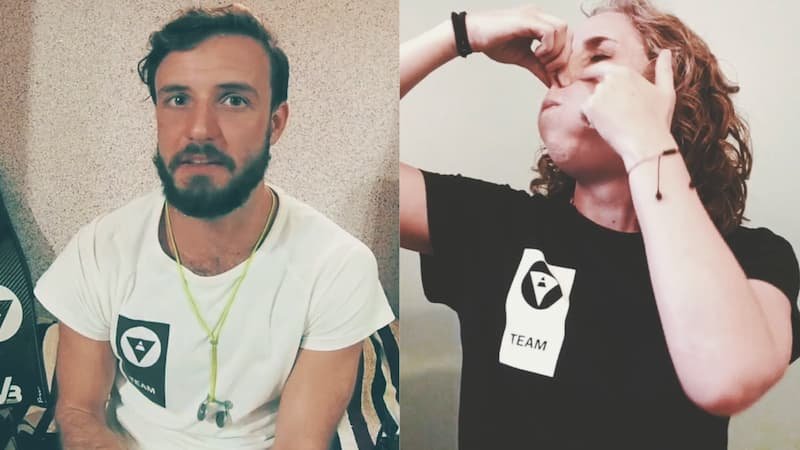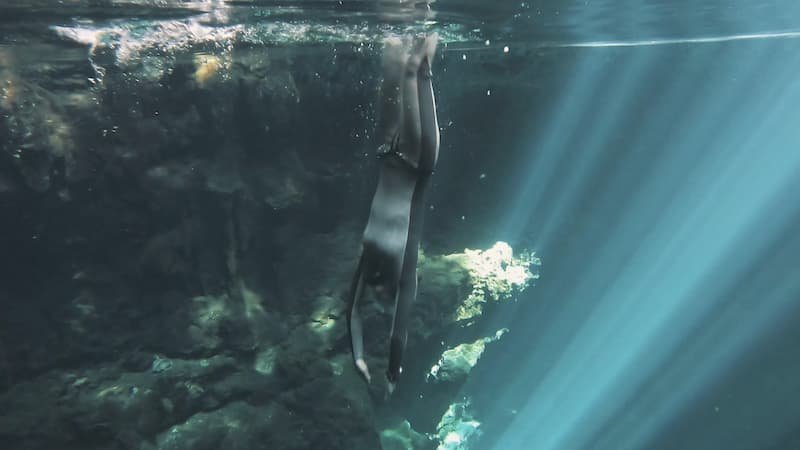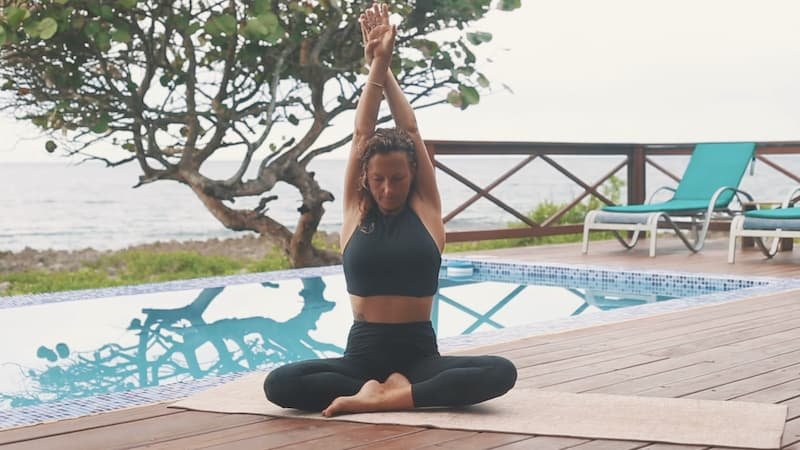Hi, I'm Bingqian, some people also know me as Susie. I'm a freediver, explorer, and an Alchemy ambassador. Today I'd like to talk about a few tips for beginner and intermediate freedivers. I've been freediving for a little over a year and I went from not being able to dive at all to 55 meters. My progression has not been linear and I consider my talent pretty ordinary. I want to share a few tips based on how I overcame the barriers and challenges in my freediving journey in the hope that they might benefit you as well.
Tip number one, learn frenzel equalization dry, preferably before you head out to your first freediving course. The reason for this is because frenzel involves muscle movements that most of us are not naturally aware of or familiar with from our day-to-day activities. So trying to figure out in the water is much more challenging than learning it dry in your own time. You can get started with online resources such as YouTube videos which help you understand the muscle movement through certain exercises. Once you get the hang of it it's much easier to practice it and put it to work when you're in the water.

This is also something that's fairly easy to learn and practice without having access to deep water, you can even do it in a pool. This was what sent me down without having the weights and lines and it was what I needed to start my fun diving journey. As I learned, it's much more about the hip movement than the arms and the legs. A good duck dive should send you down three to five meters without effort, it might take you some time to get the hang of it, but once you get it right it's much easier to start a dive and they set up the whole dive for success.

If you are like me, in your depth training, at some point you might hit the limit of your frenzel equalization where you feel like you couldn't equalize anymore or you couldn't bring up air anymore or you feel your chest is tight and your lungs are collapsing. For some people, it might also feel like you keep swallowing air for example. For me, this happened when I dive to about 22 meters a week after my first certification course. What helped me overcome this was a dry exercise that I will explain now. First you start with a full passive exhale then you pinch your nose and do frenzel equalization but you don't fully pinch your nose so that each time when you equalize a little bit of air comes out. This is to simulate the decrease of air volume in your lungs, as you dive deeper, let's do it together. Try to do it in a slow and relaxed way as if you're in a dive and focus on the sensations that come up. Is your neck and chest tensing up? Do you feel the same sensations as in the dive when you feel like you couldn't equalize anymore? And if thosesensations come up try to relax into them and see if they improve over time. This exercise also helped me realize that even after a full exhale, and you think that you don't have much air left in your lungs anymore, you still can do a lot of equalizations. This helps relax the mind and body and next time when you feel the same sensations during the dive you can just remember that and try to relax into it.

In my experience, this was a great tool to experiment with the influence of your mind on your performance and see where your limits are with equalization. Because when you know that it takes no effort to go down because you're dragged by the sled and no effort to come up because you're dragged by the balloon, and because of that you'll be much faster, and you're conserving oxygen and energy, you can relax much more easily and focus on equalization and relaxation when you're going down. And because of the speed you might get to the depth faster than you think. This helped me break the 40 meter barrier and sent me straight to 50 meters with frenzel without any discomfort. And after that experience, knowing that I was able to frenzel all the way to 50, I was able to relax much better in a free immersion dive and broke my year-long plateau of 40 meters and went to 55 meters in the subsequent three days.
I was doing some light full-lung and empty lung stretches alongside my depth training when I was between 40 to 55 meters. It did feel like some of them simulate deep diving because I was feeling exactly the same sensations of tight chest as if I was diving to 40 meters. This is probably because my diaphragm was not flexible enough and so on the one hand those exercises helped my body and mind get used to those sensations so that it's easier to relax into them, and on the other hand it also helps to improve the flexibility of my diaphragm. The no-limits experience and the stretches helped to relax my mind and gain confidence that 50 meters is within my reach, that it's not scary and it's not something that I need to fight really hard for. I think having that reassurance in mind really makes a difference during the dive.

While those tips and exercises mentioned were really effective in helping me overcome the barriers, it shouldn't be ignored that I was diving here and there throughout the year. Sometimes those are depth training where I would attempt my personal best, sometimes those are dives within my comfort zone where I try to have as relaxed and enjoyable dives as possible, sometimes they're fun dives to explore wrecks or check out marine life or just mess around. All those experiences add up and they contribute to how comfortable you feel in the water. Remember you're diving for yourself and no one else. So find what feels good, let go of your self-imposed pressure and enjoy the dives.